Size Matters — But So Does an Inclusive Shopping Experience

Chromat/InStyle
Cher Horowitz's spinning closet has been the stuff of fashion fantasy since Clueless dominated the box office in 1995. But ask any online shopper today and they'd probably trade that tech for the simple ability to see what clothing would look like on their body before they click "buy." For too long — since roughly the advent of catalogs — clothes have been modeled and marketed on one body type. Finally, more brands are putting inclusivity at the forefront, but at this point, an expanded size range is the floor not the ceiling. What about some inclusive body representation on the actual shopping sites and in campaign imagery, or tools that improve the shopping experience universally?
Brands like Lizzo's shapewear line YITTY are leading the charge with innovative features that make shopping just as fun as browsing Cher's revolving closet. And to quote the hitmaking founder, "it's about damn time."
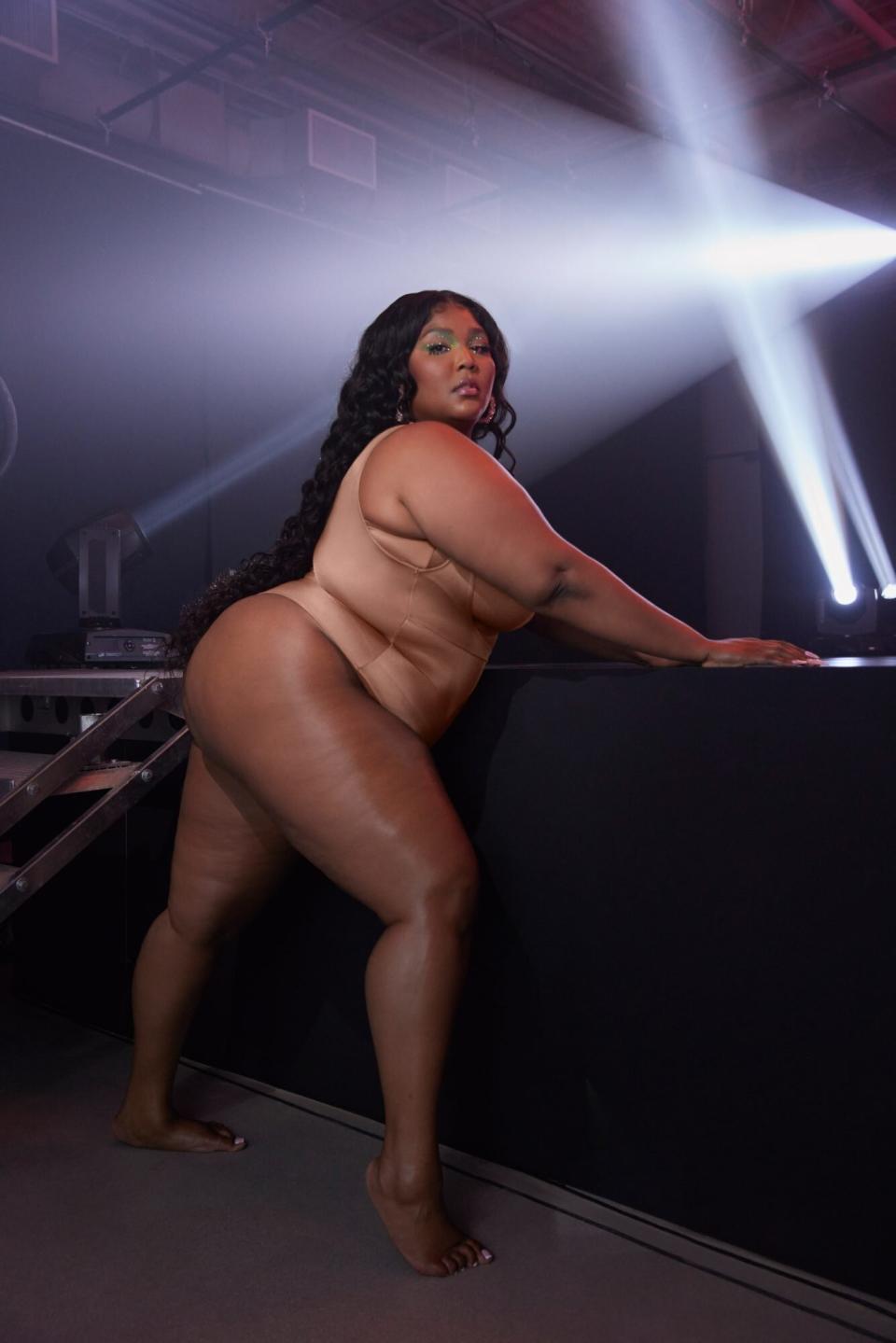
Courtesy Yitty
The singer tells InStyle that after years (like, since elementary school) of trying to change her body, she decided to stop hiding. "I felt this pressure of constantly being told that my body wasn't good enough, and I had to inflict some sort of pain upon it to fit into an archetype or a standard of beauty," she says, recalling the constricting, girdle-like shapewear she grew up with. "I really felt that it shouldn't be this way; we shouldn't be ashamed of our bodies and we shouldn't have to wear these contraptions to feel beautiful."
RELATED: 5 Plus-Size Influencers Share Their Complicated Journeys to Finding Their Personal Style
When she got tired of waiting around for someone else to invent the perfect product, she decided to take matters into her own hands and set out to redefine shapewear and how women shop for it. Earlier this year, the Grammy-winning singer launched YITTY (her childhood nickname). "I am introducing shapewear that fits every body — from 6X to XS — and makes me feel good about myself," she explains. "It is not about changing my body. YITTY complements and emphasizes the beauty of my body, the curves, the textures, and the color. It holds me. It's comfortable. It's like wearing a piece of confidence."
But where Yitty really begins to differentiate itself is in the ways the brand champions — and normalizes — bodies of different shapes and sizes. YITTY President Kristen Dykstra explains that in addition to a reversed size scale (sizes are listed 6X-XS on the site, rather than small to large) and a unique, circular size chart ("so all sizes feel treated equal"), the brand also carefully selects "campaign faces and e-commerce models who don't just represent a broad spectrum of sizes and ethnicities, but also showcase different body types," says Dykstra. "We shoot every style on a spectrum of sizes and body types, so that based on how you filter your size, you are likely to see someone whose body type you relate to."
Lizzo is just one (important!) example of this new normal. According to online research database Acute Market Research, the plus-sized market (plus-size apparel sold through several mediums including online and brick and mortar) is valued at over $178 million, and growing every year. Brands that serve this sector thoughtfully and holistically have experienced that growth firsthand and have the devoted fan bases and loyal shoppers to show for it. For example, Good American, Chromat, and Universal Standard built their business models around an inclusive shopping experience that includes larger size ranges, diverse models, reversed size scales, and more.
RELATED: Remi Bader Designed Your New Favorite Fall Outfit — and It Goes Up to a 4X
Good American was founded in 2016 by Khloé Kardashian and now-CEO Emma Grede with the goal to make jean shopping less painful. The company was born out of a conversation between the two friends about "what it means to be a woman today and how so many are ignored by the fashion industry when it comes to sizing and inclusivity," Grede says.
"Shopping for denim, essentials, shoes, and swim can be one of the most emotionally charged and difficult experiences for women due to the overwhelming lack of size-inclusive and trend-forward options," Grede adds. "We wanted to build a brand that truly empowers all women."
The billion-dollar company caters to consumers with their Always Fits approach: an expansive size range of 0 to 32 with each pair fitting four different sizes ("One-size-fits- four") to adapt to your body's changes and "accommodate size changes and fluctuation," according to Grede. A "non- negotiable" for the brand? The full size range must be offered by every retailer where their products are sold. But perhaps the company's most notable shopping feature is their online style tool that shows products on models sizes 0 to 24 — you can even choose which model you'd like to see wearing the products. "We make sure every product we develop is designed for women of all shapes and sizes," says Grede. And that commitment is carried through to the final buyer looking at those items online.
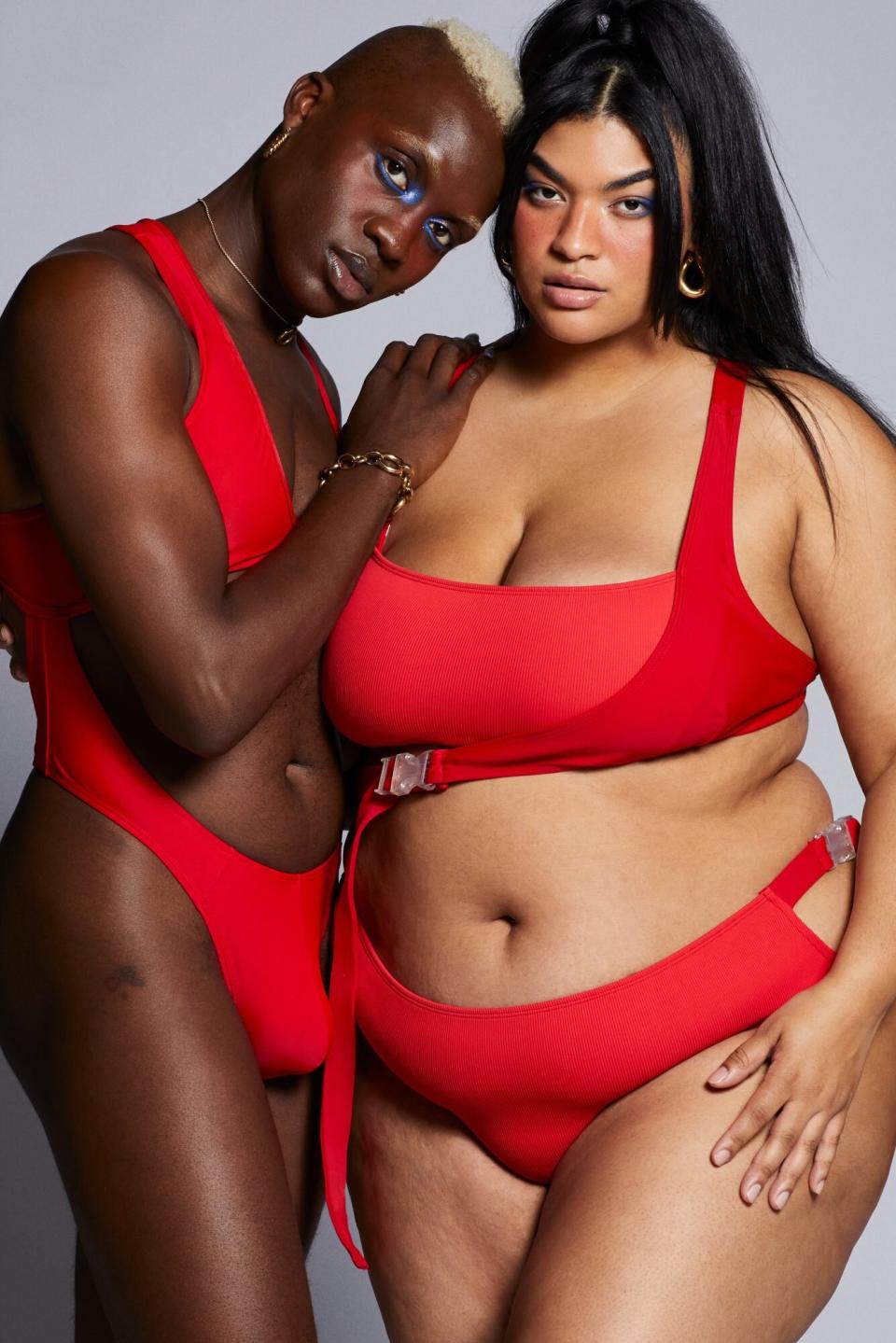
Courtesy Chromat
Swim and sport brand Chromat, which launched in 2010, is celebrating that every body is a summer body with pieces catered towards a diverse demographic. "From the very beginning, we have featured plus size, trans, and disabled models in our runway shows and campaigns," says founder Becca McCharen-Tran. The progressive brand's website features fluid imagery with models of all shapes and sizes and "girls who don't tuck" to normalize all bodies.
"To us, it was just a reflection of the inspiring people in our community. It's always been that and always will be," McCharen-Tran says.
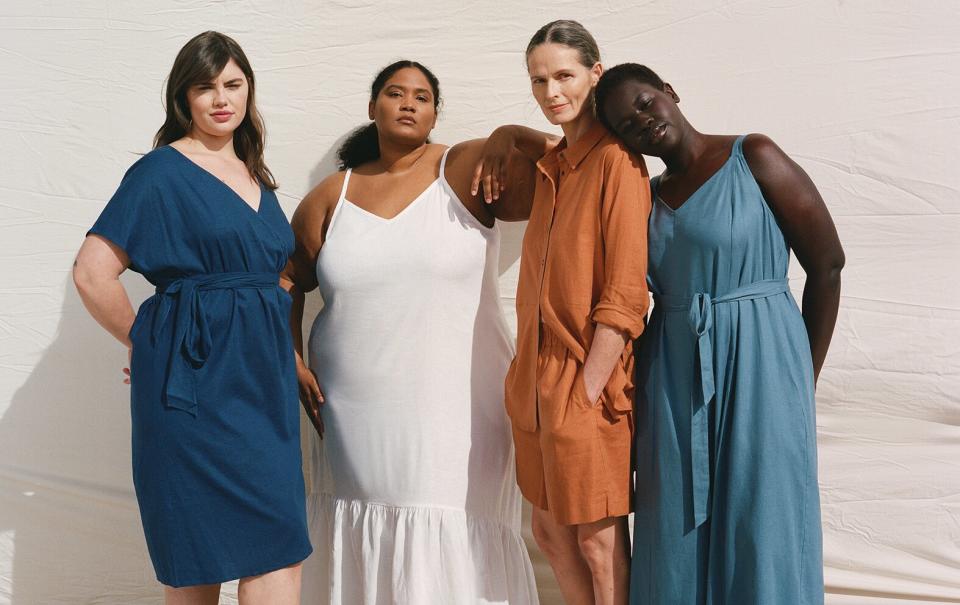
Universal Standard
Another leader in the inclusive-shopping space is Universal Standard, which was created after its two founders, Polina Veksler and Alex Waldman, went for a shopping trip together and couldn't browse in the same section. "It was clear that all women weren't given the same level of style, quality, or even respect in fashion," says Veksler. "We created Universal Standard to democratize the shopping experience, so that all sizes, whether a 2 or a 32, can shop in the same way."
RELATED: 36 Stores That Sell Incredibly Cute Plus-Size Clothing
Since that moment in 2015, the company has completely rewritten the size chart to better align with shoppers in the U.S. They carry sizes 00 to 40, and their medium is a size 18, which reflects the average American woman's body. (In 2021, the average was between a 16 and 18, according to International Journal of Fashion Design, Technology and Education.) The retailer's site also provides a "SeeIt In Your Size" button that allows consumers to view a product on a model in each size to get an idea of how the item will look on a body like theirs. Plus, their "Fit Liberty" program, launched in 2017, allows customers to exchange pieces for a different sized product, no questions asked, if their weight fluctuates.
Creating these programs wasn't without difficulty or challenges. "These functionalities do require quite a bit of hard work and upfront expenses, but it is worth it, as they've proven to be highly valuable for our customers, who are our main priority," says Veksler. "For example, the 'See It In Your Size' tool has helped to reduce our return rate to a degree that is much lower than the industry average. Our upfront effort always pays off in the long-term."
At first, being the only brand making changes like this forced Veksler and Waldman to be creative and make their own rules. Now, they hope they've set a new precedent.
"We never set out to be the sole source for size-inclusive clothing," Veksler tells us. "We set out to start a revolution."
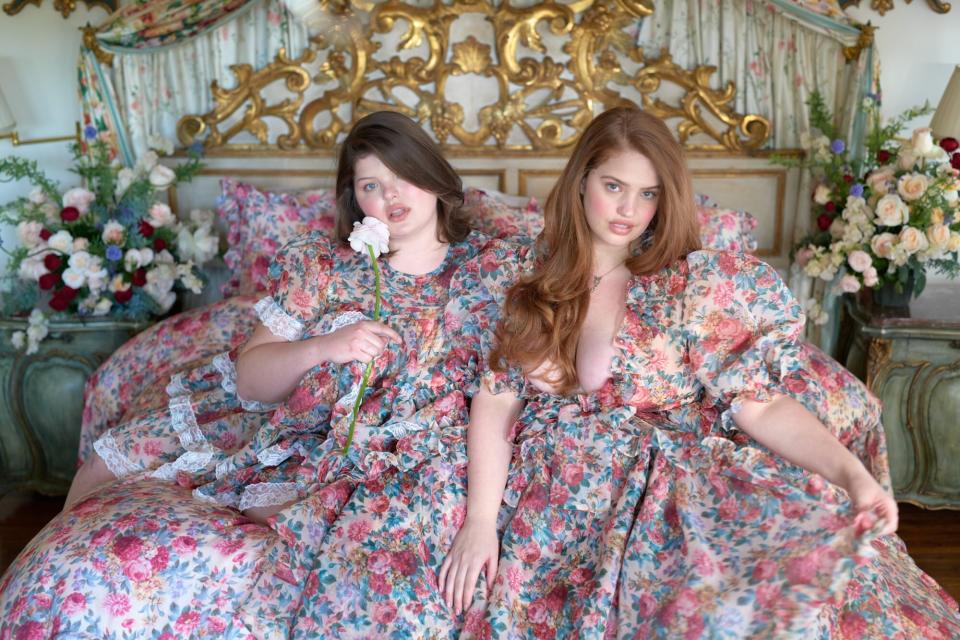
Courtesy Selkie
"It was troubling to examine how I'd grown up and what my participation in perpetuating the exclusive standards taught to me over my lifetime. I wanted a brand that was magical and whimsical, and I knew this one would be size-accessible from the very beginning."
— SELKIE FOUNDER KIMBERLEY GORDON
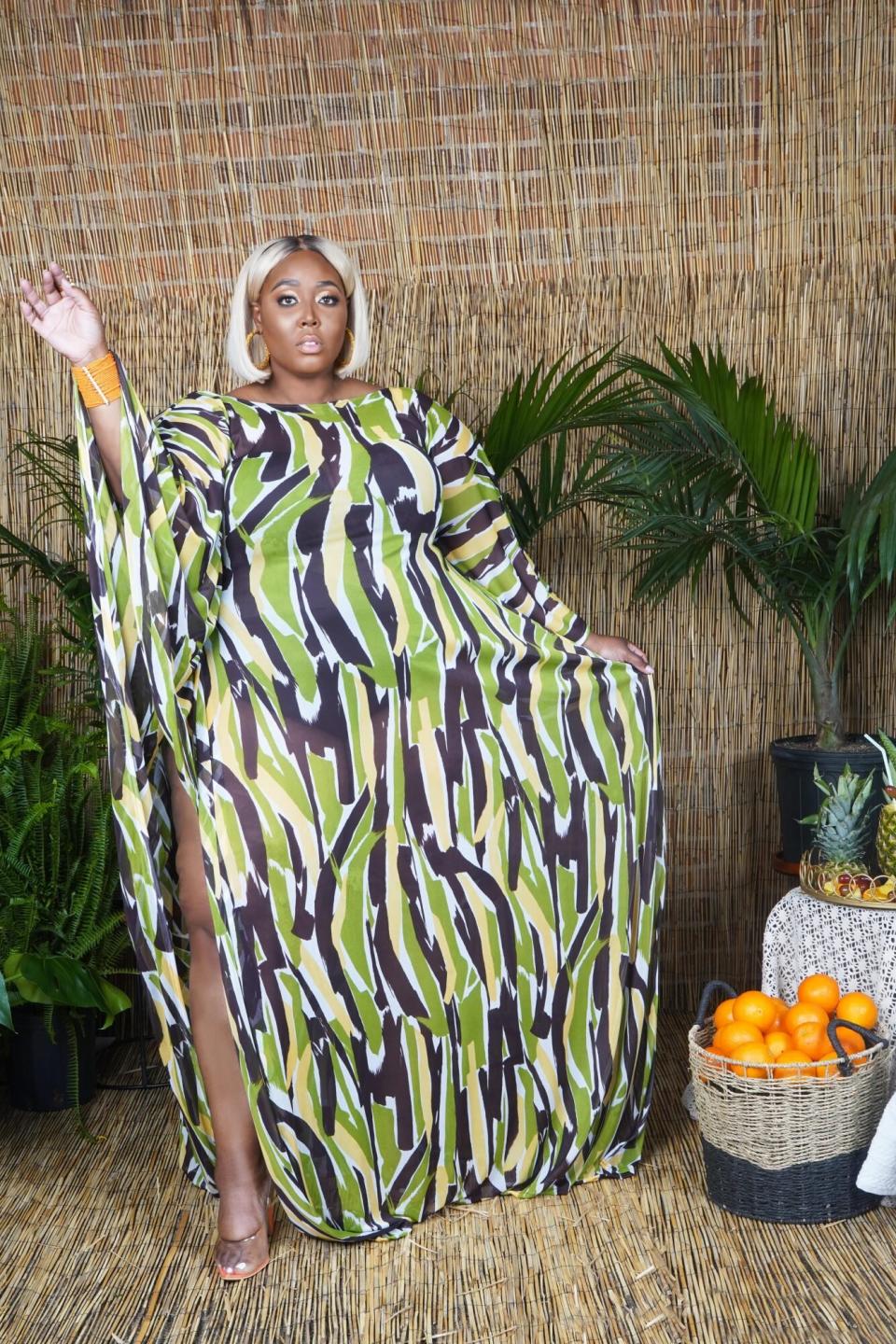
Courtesy Christian Omeshun
"When I created Christian Omeshun, there was a determination to create luxury clothing for plus-size women. I wanted them to feel bold, sexy, and confident in their fashions. I saw a need for diversity, extended size inclusion beyond a size 32+, high fashion fabric selections, and an expansion of size representation within the industry."
— CHRISTIAN OMESHUN, FOUNDER AND HEAD DESIGNER, A'SHONTAY HUBBARD
"The goal was to transform how people looked at their intimates drawer. By separating our sizing into groups by your shape/size, we help you get the fit designed just for your size, with features that work for you. Customers can shop by size or by body type and can get help with their fit with online fittings as well."
— COSABELLA'S GUIDO CAMPELLO, GENERAL MANAGER AND SON OF FOUNDERS VALERIA AND UGO CAMPELLO
RELATED: Summer's Sexiest Suits
"Women were being portrayed by an antiquated industry and we felt compelled to change the conversation and forge a new path where women could feel empowered, beautiful, and confident on their own terms."
— SUMMERSALT CO-FOUNDER AND CBDO RESHMA CHATTARAM-CHAMBERLIN

